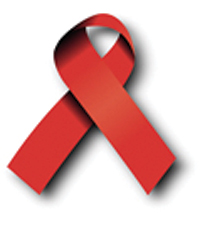Africa Must Step Up Fight against HIV/AIDS

The role of Youth in HIV and AIDS need to be harnessed
When HIV and Aids was first detected in Kenya in the year 1982, majority of Kenyans never anticipated that HIV and Aids will be a great threat to our lives both directly and indirectly. As a result Kenyans took so long to accept the mundane fact that Aids and HIV was a threat to well being of our society and it was real.
 |
| Red Ribbon Photo:Courtesy |
Besides, most developing countries in Africa have failed to accept that HIV and Aids is real and is taking great toll on the social, economic and political developments of every nation where very brilliant, hardworking population of our society, energetic youth succumb to HIV and Aids in very early stages of life of working hence robbing the country much need manpower for its growth and development.
Those who die leave behind children who have no social benefits as the Kenyan government is yet to enact a law that will create a Social Protection to such eventualities. A widow/widower also finds it hard to lead a normal life due to society stigmatization hence they also follow suit –die or commit suicide to avoid more suffering.
Kenya must develop new ideas and technologies on how to fight and stem the ever rapid growth of HIV and Aids pandemic in the country. It is thus prudent to develop several approaches to reduce HIV and Aids impact on our Society.
From a Conference held in Kenya on HIV and Aids in Nairobi on Wednesday May 22, 2009. The following were views of some experts:
Grassroots movements from 32 mostly African countries gathered for an HIV and AIDS conference in Nairobi aimed at exploring radical new approaches to stopping the spread of the syndrome.
“If after 30 years of the pandemic over 90% of people living with AIDS do not know their status, And 70% of people who need treatment are not getting it, then there is something we are not doing right," said Wasai Jacob Nanjakululu, an HIV and AIDS expert for the British charity Oxfam-Kenya Chapter "We are far from winning the struggle against AIDS," said Leonard Okello, an Action Aid International expert in HIV and AIDS.
Millions of dollars -- mostly Western-sourced -- have been poured into anti-AIDS campaigns, but experts say these are not being spent effectively. "There are a lot of resources in HIV and AIDS programmes but not much of that reaches the community.
Miriam Were, the head of Kenya's National AIDS Control Council, said Africa was in denial for too long after the syndrome hit. "We were too slow, even when we had evidence staring at us, we buried our heads in the sand," she said
In the face of increasing donor fatigue and other issues from the global financial crisis to climate change and emerging epidemics like swine flu, fears are that the HIV and AIDS pandemic risks slipping off the international agenda.
As we have accepted the reality of HIV and Aids to be part and parcel in our midst there is need for all stakeholders which includes governments, civil societies research institution to continually seek ways of containing HIV and Aids spread.
As young people both locally and globally the onus is upon us to play a crucial and leading role to help in stemming HIV and Aids pandemic otherwise the future of next generation is bleak.
As an old African saying goes, one finger cannot kill a lice but two fingers will. Let us join hands to discuss about establishing information sharing networks and also lobbying for new synergies towards HIV and Aids program like affordable drugs, clean water and food for the HIV and Aids patients.
This article was co-authored by Gibson Amenya comments on topical issues, Irene Mutheu-Graduate Nurse University of Nairobi and Esther Kagendo- Graduate Nurse University of Nairobi
